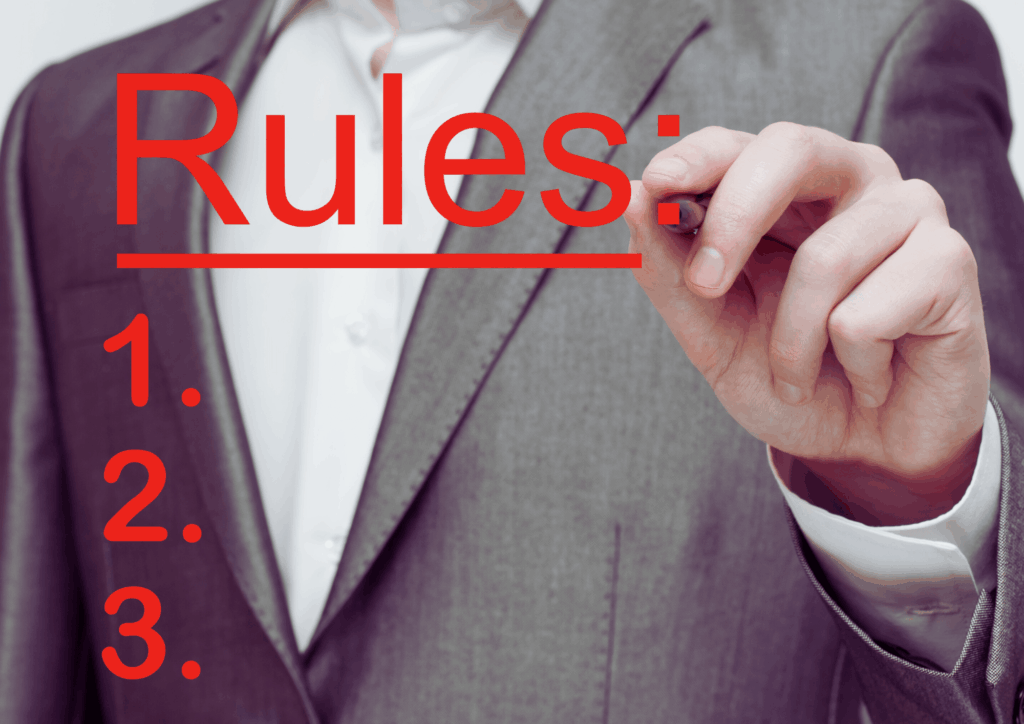
Legal mistakes are just a little bit too easy to make.
You understand your responsibilities as an HOA board member in Winston-Salem. You’re tasked with maintaining the aesthetic and functional integrity of your residential community. It’s up to you and your fellow board members to make decisions that are good for the association as a whole. Those decisions are also going to impact the lives of homeowners. Whether we’re talking about enforcing rules and collecting fees or ensuring the proper maintenance of shared spaces, everyone agrees to a certain set of rules and expectations.
With your role in a leadership position within the community, your responsibilities can come with a significant legal burden.
Even well-intentioned decisions can inadvertently lead to legal pitfalls that put the entire community, and your HOA board, at risk.
Winston-Salem HOAs often hire us for exactly this reason. They want to make sure they’re protected – personally and as a board. We specialize in risk management and we understand the requirements of state and federal laws very well.
We’re not lawyers, and if there are specific and unique legal questions that are plaguing the community or the board, a lawyer is absolutely necessary. But as your property management resource, we can help you explore the various legal risks that HOA boards face, from issues related to fair housing and discrimination laws to compliance with state-specific regulations and contract law.
Understanding the nuances of these legal concerns is not just important for protecting the association, but also for safeguarding your personal liability as a board member.
This is a landscape where laws and regulations are continually evolving, so staying informed and ensuring compliance is critical for maintaining the integrity of the HOA and creating a positive relationship between homeowners and the board.
Let’s take a look at the most common legal challenges facing HOAs today and offer guidance on how to proactively manage risks. As you know, effective governance is not just about making the right decisions. It’s about making them within the boundaries of the law.
Are There Legal Problems with Your Governing Documents?
Ensuring that all governing documents comply with North Carolina state laws is a legal obligation for HOA boards. North Carolina, like many other states, has specific statutes that govern how HOAs must operate. These laws cover a wide range of issues, from the proper handling of finances and property assessments to rules about board meetings and elections.
Failing to align HOA documents with state requirements can lead to significant legal and financial repercussions for the community.
One of the key responsibilities of an HOA board is to ensure that governing documents, such as the declaration of covenants, conditions, and restrictions (CC&Rs), bylaws, and rules and regulations, are up to date and in full compliance with North Carolina law. For example, North Carolina’s Planned Community Act and the North Carolina Condominium Act set forth various requirements that must be incorporated into an HOA’s governing documents. These laws dictate everything from the election process for board members to the requirements for meeting notices and financial disclosures.
In addition to those laws, noncompliance can expose the HOA to lawsuits from homeowners, fines from regulatory bodies, or even invalidation of certain rules and provisions. For instance, a provision in the governing documents that contradicts state law might be unenforceable in court. This could lead to disputes and erode trust within the community.
To avoid such pitfalls, HOA boards should regularly review and update their governing documents, consulting legal counsel with expertise in North Carolina property law. Doing so ensures that the HOA remains legally compliant, minimizes the risk of litigation, and fosters a fair, transparent environment for all residents. Ensuring legal compliance is a proactive step that ultimately benefits the entire community.
Let’s Talk About the Way You Enforce the Rules

Enforcing community rules is unquestionably important. You have to ensure that homeowners adhere to certain standards. However, while HOAs have legal authority to enforce rules, their actions can sometimes lead to significant legal issues, especially if the enforcement process is inconsistent, lacks transparency, or appears retaliatory.
Here are some common legal mistakes that may occur in the enforcement of HOA rules in Winston-Salem, and the legal consequences of unreasonable rules.
| Inconsistency in Enforcement
One of the most common legal mistakes that HOAs make is enforcing rules inconsistently. For instance, an HOA might enforce a specific rule against one homeowner, but ignore violations by others. This selective enforcement can create a perception of favoritism or bias, which can lead to legal challenges. Under North Carolina law, an HOA must apply its rules uniformly, or it risks violating the fair treatment principles set forth in the governing documents, such as the Declaration of Covenants, Conditions, and Restrictions (CC&Rs), as well as potential claims of discrimination. If homeowners feel they are being unfairly targeted while others are left unchecked, they may have grounds for a legal claim based on unequal treatment or breach of the community’s governing documents. Inconsistent enforcement can also lead to confusion about what is actually expected of homeowners. If an HOA enforces certain rules at random or with varying levels of strictness, homeowners may not fully understand the standards they are supposed to follow. This undermines the credibility of the HOA and creates legal risks, as rules must be clear and applied consistently to avoid challenges in court. |
Lack of Transparency
Another significant issue in HOA rule enforcement is a lack of transparency. Homeowners have a right to know why certain decisions are being made, including why they are being cited for a rule violation. If the process is opaque or unclear, it can create distrust within the community. For example, if an HOA sends a violation notice without providing clear evidence or detailed explanations, it could be seen as arbitrary. In North Carolina, homeowners are entitled to certain due process protections, and an HOA’s failure to provide sufficient information about violations can lead to legal challenges. We know that many HOAs in North Carolina require homeowners to appeal a rule violation through an internal committee. If this process is not transparent, with unclear procedures for how decisions are made or how homeowners can present their case, the HOA could face legal scrutiny. A lack of transparency could be construed as unfair treatment and result in lawsuits or mediation requests. |
| Retaliation
Retaliation is another major legal pitfall for HOAs. Retaliatory enforcement occurs when an HOA targets a homeowner for reasons unrelated to the violation itself—often as a result of complaints made by the homeowner, such as for raising concerns about the HOA’s actions or participating in community disputes. North Carolina law protects homeowners from retaliatory actions by HOAs, including retaliatory fines or enforcement of rules. If an HOA takes action against a homeowner in retaliation for lawful activities, such as organizing a petition or attending a meeting to voice concerns, the homeowner may have grounds to pursue legal action. Retaliation can also manifest in more subtle ways, such as a disproportionate application of fines or increased scrutiny over minor violations. This kind of behavior not only risks legal consequences for the HOA, but it also erodes the sense of fairness and trust in the community. |
Unreasonable Rules
Perhaps the most significant legal issue an HOA can face is the enforcement of rules that are deemed unreasonable or unenforceable. Under North Carolina law, for an HOA’s rules to be valid, they must be reasonable and consistent with public policy. If a rule is overly burdensome, discriminatory, or restricts homeowners’ rights in ways that are deemed unreasonable, it can be challenged in court. Examples of unreasonable rules might include overly restrictive architectural guidelines, excessive noise ordinances, or limits on free speech. For instance, if an HOA enforces a rule that limits the number of plants a homeowner can have in their garden without a legitimate purpose—such as for aesthetics or safety—the rule could be deemed unreasonable. Homeowners who feel that a rule is unfairly limiting their rights might challenge it in court, especially if it is deemed to serve no rational or legitimate interest. The consequences for an HOA could be significant, including having the rule overturned and potentially facing financial liability for damages. |
While HOAs Winston-Salem have a duty to enforce community rules, they must do so in a manner that is fair, transparent, and consistent with both their governing documents and state law. Failure to do so could lead to legal challenges from homeowners, claims of discrimination, or even the invalidation of certain rules.
Don’t overstep. By ensuring that enforcement is fair, transparent, and based on reasonable and well-communicated rules, HOAs can avoid common legal pitfalls and create a more harmonious community.
Financial Mistakes Lead to Legal Pitfalls
 Financial mismanagement within an HOA can expose the association to significant legal risks, including lawsuits, regulatory penalties, and even the potential dissolution of the association. Understanding these risks is crucial for board members, property managers, and homeowners.
Financial mismanagement within an HOA can expose the association to significant legal risks, including lawsuits, regulatory penalties, and even the potential dissolution of the association. Understanding these risks is crucial for board members, property managers, and homeowners.
- Breach of Fiduciary Duty
Board members of an HOA have a fiduciary duty to act in the best interest of the association and its members. This includes a responsibility to manage HOA funds responsibly, make prudent financial decisions, and ensure transparency in financial operations. If an HOA board mismanages funds, either through negligent budgeting, improper allocation of funds, or failure to maintain proper financial records, board members may be accused of breaching their fiduciary duties.
A breach of fiduciary duty can lead to personal liability for board members. In extreme cases, homeowners may sue the board members for damages resulting from financial mismanagement. In Winston-Salem, where the legal environment may be influenced by both state law and local ordinances, board members can be held accountable in civil court for not fulfilling their duties properly.
- Fraud and Embezzlement
Financial mismanagement in an HOA can sometimes cross the line into fraud or embezzlement. For example, if an individual, whether a board member or a manager, intentionally misappropriates funds from the HOA for personal use, this constitutes criminal fraud. Embezzlement charges can result in severe penalties, including criminal charges and jail time.
This is a serious situation which is more than a legal pitfall, but a serious criminal act. Such a situation would warrant police involvement, and local authorities would likely investigate any such claims. If proven, the person responsible could face both criminal and civil liability. Beyond criminal penalties, the HOA itself could also be required to reimburse the stolen funds, further exacerbating the financial harm caused by the mismanagement.
- Violation of State Laws and HOA Governing Documents
North Carolina law provides specific guidelines for the financial management of HOAs, including rules around assessments, budget creation, and reserve funds. A failure to comply with these laws can expose an HOA to legal challenges from homeowners or external regulatory bodies. For example, if an HOA fails to properly disclose financial statements or provide adequate notice of annual budget meetings, it may be in violation of the North Carolina Planned Community Act.
In Winston-Salem, a homeowner who feels the HOA has violated its own governing documents or state law may file a lawsuit to compel compliance. These legal battles can be costly, time-consuming, and damaging to the HOA’s reputation.
- Improper Handling of Reserve Funds
Reserve funds are essential for the long-term maintenance and repair of common areas within the community. Improperly managing or depleting reserve funds can result in an HOA being unable to cover necessary repairs, leading to deterioration of community assets and a decline in property values. If homeowners are forced to pay additional assessments to cover these costs, it can lead to disputes and potential legal action.
An HOA that fails to maintain adequate reserves or mismanages these funds could face legal claims from homeowners for breach of contract or misrepresentation, particularly if the financial instability was not disclosed properly.
|
Legal Costs and Damaged Reputation Even if an HOA successfully defends itself in a legal dispute over financial mismanagement, the costs associated with litigation can be significant. Legal fees, settlement costs, and damages can be a drain on the HOA’s resources, further compromising its financial health. Additionally, the HOA’s reputation within the community may be permanently damaged, leading to reduced property values and potential difficulty in attracting new residents. |
Financial mismanagement in an HOA carries serious legal risks, ranging from breaches of fiduciary duty and fraud to violations of state laws and governing documents. To avoid these risks, HOA boards must ensure transparency, accountability, and compliance with both local and state regulations. Proper financial planning, effective communication with homeowners, and regular audits can help safeguard an HOA against legal pitfalls and ensure the long-term health and stability of the community.
What About Your Own Liability as a Board Member?

Let’s talk about protecting not only your HOA, but yourself.
HOA board members must understand their legal obligations and take proactive steps to minimize risk. It’s always essential to understand your fiduciary duties. Here’s what else you can do.
| Carry Directors and Officers (D&O) Insurance
One of the most effective ways for board members to protect themselves from personal liability is by ensuring that the HOA carries adequate Directors and Officers (D&O) insurance. This policy provides coverage for board members if they are sued for actions taken while serving on the board. D&O insurance typically covers legal fees, settlements, and damages that arise from allegations of mismanagement, breach of fiduciary duty, or errors in decision-making. Having this protection in place can offer significant peace of mind for board members, knowing that they have financial support if a lawsuit is filed against them. |
Adopt and Enforce Clear Policies
Board members should ensure that the HOA has clear and consistently enforced policies. This includes defining the process for handling disputes, creating fair and reasonable enforcement of community rules, and addressing grievances. By following a well-established procedure, board members can reduce the likelihood of legal challenges. Ensuring that all policies are in writing and that residents are made aware of them is another step toward reducing liability. Avoid making arbitrary or personal decisions. Instead, base actions on the governing documents and established policies. Be consistent. |
| Utilize Professional Management Services
Enlist the help of a professional association manager. A property management company with experience in managing HOAs can handle the day-to-day operations of the association, including accounting, maintenance, and communication with residents. Professional managers also bring knowledge of local laws and regulations, reducing the risk of legal issues arising from non-compliance. |
Seek Legal Advice When Needed
Board members should not hesitate to consult legal counsel when unsure about a decision or action. An attorney specializing in HOA law can provide valuable guidance on issues like enforcement of rules, contracts with vendors, and compliance with local and state regulations. By seeking legal advice early, board members can avoid costly mistakes that could result in personal liability. |
When HOA boards work in tandem with professional managers and legal experts, they help create a well-governed community while protecting themselves from personal liability.
We can help. Let’s avoid liability and manage risk better in your Winston-Salem HOA. Contact us at Capstone Realty Consultants, and we’ll do our best to keep you on the right side of the law.
